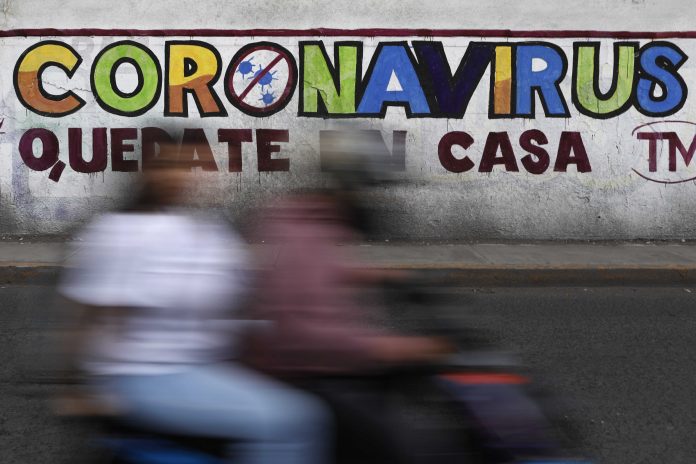
On a day Mexico saw its worst daily increase yet in coronavirus cases, foreign-owned auto plants began setting dates for reopening.
Volkswagen de Mexico said late Thursday it is planning to reopen its assembly plant in Puebla state and its engine factory in Guanajuato state on June 1.
General Motors said it hadn’t fixed “an exact date” for reopening its plant, also in the Guanajuato city of Silao, but some workers there reported getting notices to report for work on May 18.
Ford de Mexico said, “We are working very closely with the Mexican government, complying with the health and security protocols. We hope to receive their approval to operate in Mexico.”
Toyota and Nissan did not immediately respond to requests for comment on possible reopenings of their plants in Mexico.
Pressure is growing both domestically and from the United States for Mexico to reopen manufacturing activities, something President Andrés Manuel López Obrador says could happen by May 17 in areas of the country that haven’t been hit hard by the virus.
Mexico has lost about 500,000 jobs because of the pandemic lockdown, and small store owners wrote a public letter to López Obrador on Wednesday complaining they can’t get stocks of basic supplies because hundreds of towns in Mexico have closed themselves off for fear of contagion.
In late March, the U.S. government launched a campaign to get Mexico to reopen assembly plants, suggesting the supply chain of the North American free trade zone could be permanently affected if they didn’t resume production. Mexico has said it is working on a joint plan with the U.S. and Canada to reopen factories, especially auto plants.
But the dangers of reopening are evident. On Thursday, Mexico reported its largest one-day increase so far in confirmed coronavirus cases, with almost 2,000 new infections nationwide — a 7.2% increase compared from Wednesday’s rise. Total deaths neared the 3,000 mark.
Volkswagen said in a statement it was reopening “with the aim of getting the needed elements together to ensure a stable supply chain.”
In a statement on its reopening plans, GM said: “We are waiting for the plan that the Economy Department will present for a gradual resumption of activities in the automotive industry. As soon as authorities present that plan, we will be able to restart GM operations” in Mexico.
But workers at the GM plant in Silao reported receiving messages with a GMC logo telling them to report for temperature checks and health questionnaires at the plant.
Mexico says it wants to be cautious, and indicates that hard-hit cities like Mexico City, Tijuana, Ciudad Juarez and Villahermosa probably won’t allow widespread business reopening anytime soon.
Assistant Health Secretary Hugo López-Gatell said Thursday that reopening “doesn’t mean that every place is going to get back to the same level of normality.”
In the past, officials have mentioned re-opening business in the least-affected states, but limiting interstate travel through highway checkpoints. However, the usual measures practiced at such checkpoints — taking travelers’ temperatures and asking about symptoms — are of limited use in stopping the spread of the coronavirus.
In some places, like the border assembly plants in Ciudad Juarez, across the border from El Paso, Texas, workers have demonstrated against being forced to work in close quarters and with inadequate protection measures.
But in other parts of Mexico, many residents appear eager to get back to some semblance of normality. Mexican Twitter users are using the hastag #conlacervezno to bitterly complain about the scarcity of beer — and the increase in price for what little remains.
The National Alliance of Small Business Owners said it is getting tired of lockdown measures like roadblocks, curfews and checkpoints that are often imposed, quasi-legally, at the local level.
“More than 340 townships across the country have taken unreasonable, severe and illegal measures, preventing free movement of supplies into their towns,” the group said in an open letter to federal authorities.
López Obrador feels the frustration.
“There are whole regions where there are no cases … so there, with a lot of care, with health checkpoints, we can start activities, depending on what happens in the coming days,” he has said. “That way we can start to see economic activity, which one? the construction industry, export industries, the automotive industry, tourism and other activities.”



















